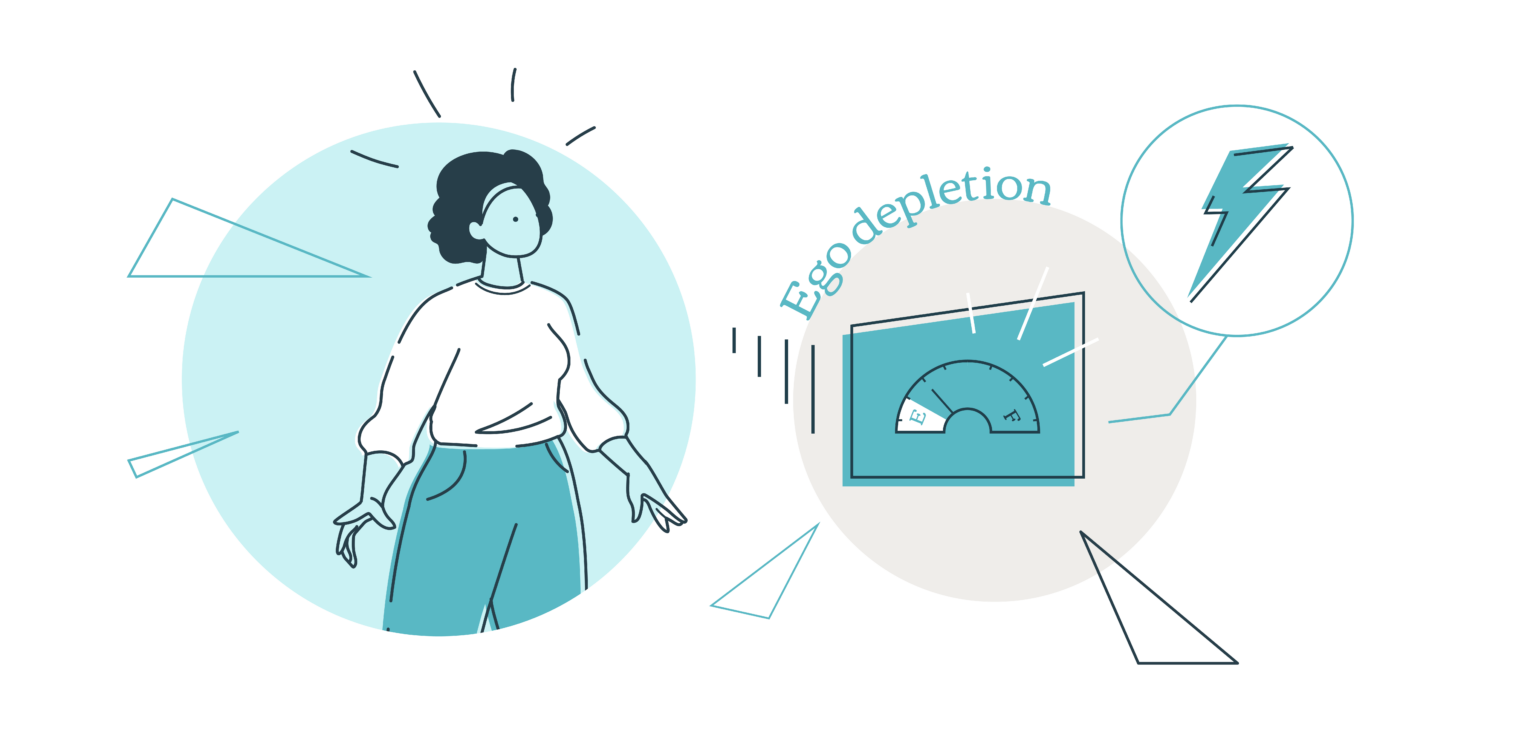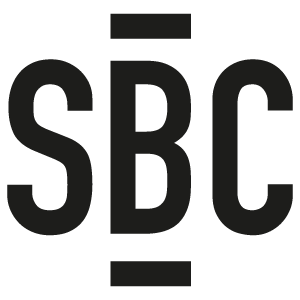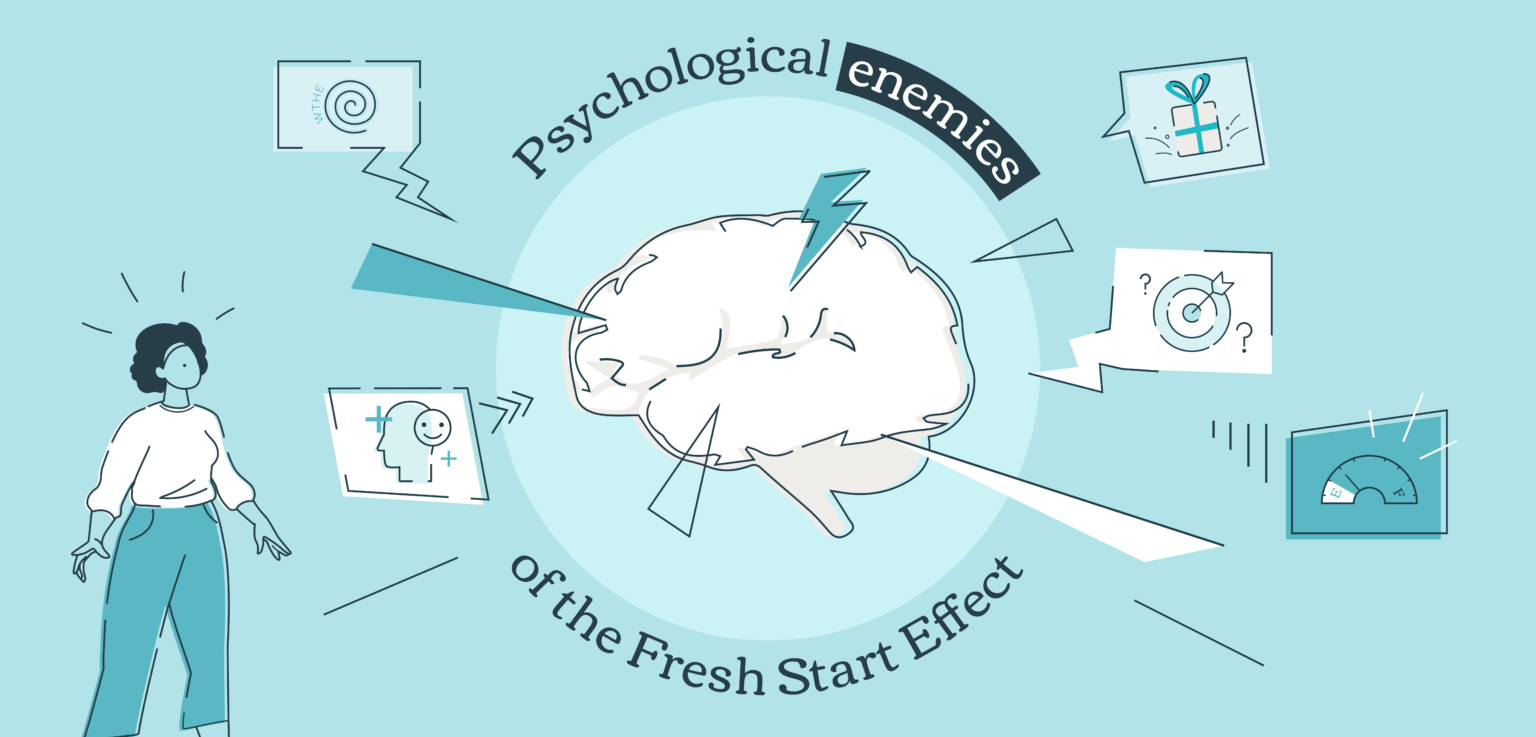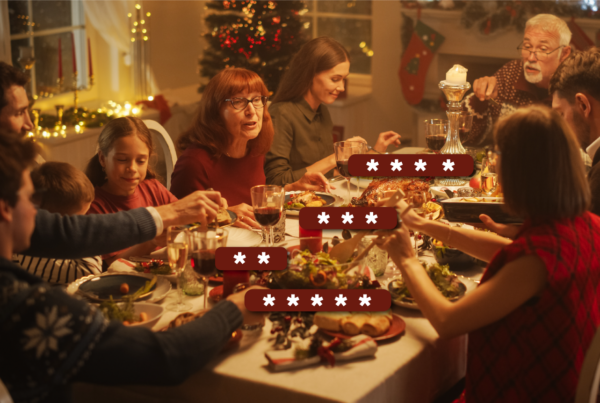With Christmas fading in our rearview mirrors, the journey ahead seems paved with good intentions. But there are some bumps in the road.
We think of our lives in chapters, says behavioural scientist Katy Milkman. And the fresh start effect – our tendency to take action around a key date or occasion – can see you break from your past and turn the page on a whole new you. Researchers have shown that we’re better at tackling our goals when we anchor them to temporal landmarks: the first day of a new week, say, a new month or – the biggie – a new year.
But why do so many of our goals crumble? And why can fresh start effects turn a bit stale? Well, it turns out we have a whole army of psychological biases and cognitive mishaps holding us back.
Here are just a handful.
Fresh Start Effect Enemy: Abstract goals
Goals that are too unspecific and abstract are more likely to be abandoned than specific ones. Let’s take, ‘Be more creative’ as an example of the fresh start effect in action. A laudable goal and we know that having such superordinate goals has merit. But what does ‘be more creative’ actually mean?
You’ve no doubt heard of SMART goal setting. Although there’s been some rope-a-dope going on in the academic (and business) literature concerning its efficacy, we’re fans of the (ahem) S&M parts, at least. So bolster overarching, abstract goals with specific and measurable ones. Think less ‘be more creative’ and more ‘read more books on creativity’, ‘doodle during lunch’ and perhaps even ‘take twice-daily gong baths.’
An added bonus? Picking concrete goals – certainly where prosociality is concerned – can actually make you happier
Fresh Start Effect Enemy: Ego depletion
Back in the 1990s, psychologist Roy Baumiester and colleagues demonstrated in their famous ‘cookies and radishes’ experiment, the theory of ‘ego depletion’ (something of an homage to Freud). Baumiester theorised that our willpower is limited and swallows up energy. Since that early foray into the idea of ego depletion there have been dozens of studies confirming the reality of its existence.
One reason, then, that your resolve evaporates (and the fresh start effect wears off) is that you’re simply using it too much.
Academically speaking, the scientific sturdiness or otherwise of ego depletion has caused something of a ruckus in more recent years. Is it really a thing? Can we really run out of willpower? Or, like a muscle, can we make it grow? We’re somewhat on the fence. But we do agree with psychologist Wendy Wood who says, ‘Will power is not actually the best way to achieve our goals and change our behaviour.’

Fresh Start Effect Enemy: Hyperbolic discounting
Hyperbolic discounting is not just a pretty name – it’s considered one of the cornerstones of behavioural economics and, as it happens, a sworn enemy of the fresh start effect. It states that we favour immediate, smaller rewards that come sooner, rather than bigger rewards that come further down the track. Hyperbolic discounting is just one of the reasons you might reach for a tub of ice cream in the evening (immediate reward: you feel good, at least for a bit) over whizzing together a green smoothie (bigger, longer-term reward: you’ll end up looking like one of those statues in Rome).
Fresh Start Effect Enemy: The what-the-hell effect
The WTHE is one of the biggest threats to your willpower. You indulge in something you swore yourself off, regret it, then rush back for more – often leading to a cycle of self-loathing, spiralling negative emotions, and all kinds of fresh start effect destroying behaviour. Bleak stuff. But try to remember: one slice of pizza doesn’t mean eating cheeseburgers until they come out of your ears. Checking Twitter, despite a promise to yourself to lay off social media, doesn’t mean a round-the-clock social media bender. Missing a gym session doesn’t mean never going to the gym again.
Former Guardian columnist and author of Four Thousand Weeks: Time Management for Mortals, Oliver Burkeman, cites the oft-repeated self-help platitudes about pilots being off course for 90% of a plane’s journey but still (mostly always) reaching their destination. ‘Course-correcting’ he says, ‘is the essence of good flying.’ Pilots don’t automatically sprint to the drinks trolley after veering slightly off course. Neither should we.
Fresh Start Effect Enemy: Optimism bias
Optimism bias is one of the most persistent, prevalent and potent biases ambushing our day-to-day lives. Who needs resolutions and goals, goes the thinking, when our future is one full of joy, industry and cast-iron success? We’ll just, you know, somehow get harder, better, faster, stronger.
According to neuroscientist Professor Tali Sharot, ‘we underrate our chances of getting divorced or being in a car accident [but] also expect to live longer than objective measures would warrant, overestimate our success in the job market, and believe that our children will be especially talented.’
We don’t mean to sound pessimistic about the fresh start effect, but do keep an eye out for optimism bias. And also keep an eye out for – hurrah! – the cognitive mechanisms and biases that can actually help you achieve your goals, in our next blog.




